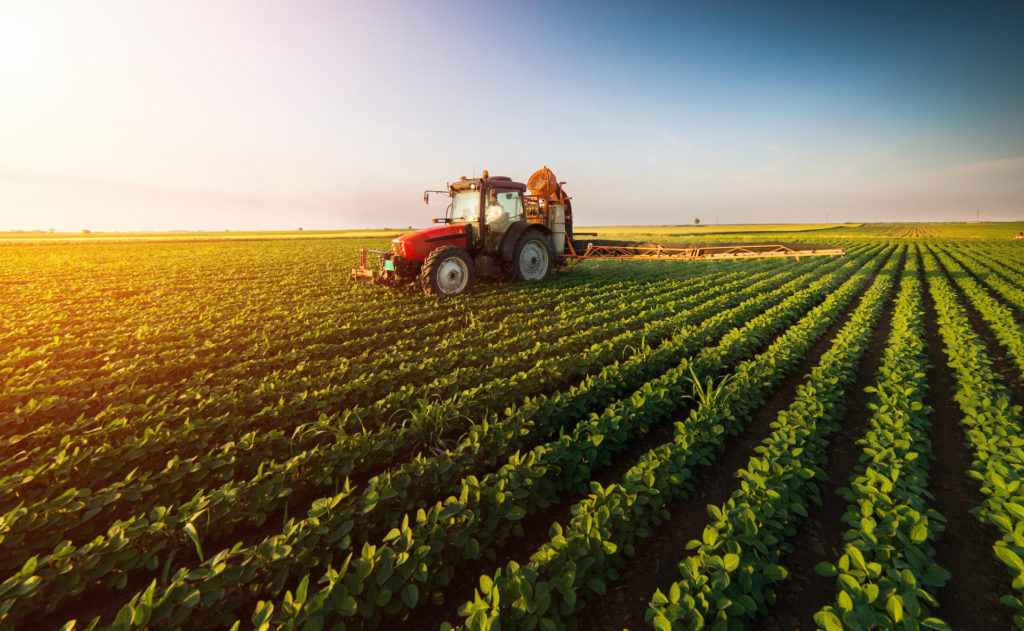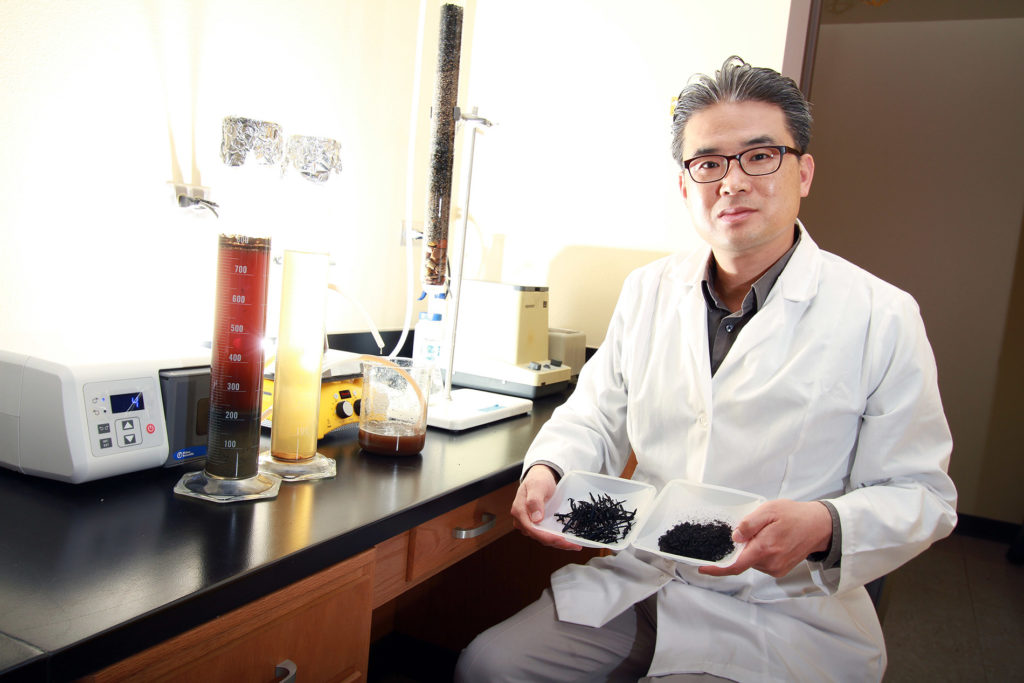College Station, Texas, USA
December 15, 2022
A multi-institutional team of researchers led by The University of Texas at Arlington, with major partners Texas A&M AgriLife, Tarleton State University and the University of Missouri, is launching an effort to provide small and underserved farmers in Texas, Arkansas and Missouri with resources to increase their soybean production.

Texas A&M AgriLife researchers will be part of a project utilizing biochar on soybean farms to reduce greenhouse gas emissions. (Stock photo)
The project, “Climate Resiliency for the Farm and Market Development: Economically Viable Low-Carbon and Climate-Smart Practices for Soybean Farms,” will examine various innovative biochar treatments that will focus on reducing greenhouse gas, GHG, emissions in soybeans.
Biochar is a man-made charcoal material composed of agricultural wastes including manure, crop residues and forage grasses. It can be used as sustainable fertilizer and to filter a broad range of contaminants in wastewater and water, as well as to capture greenhouse and odorous gases such as carbon dioxide and ammonia.
The multidisciplinary project is funded by a grant of nearly $5 million from the U.S. Department of Agriculture. It seeks to establish climate-smart agricultural practices to increase sustainable production by reducing harmful emissions while simultaneously improving soil health and water capacity.
Woo-Suk Chang, Ph.D., University of Texas at Arlington associate professor of biology, will lead the project with co-principal investigator Eunsung Kan, Ph.D., a Texas A&M AgriLife Research biological engineer at the Texas A&M AgriLife Research and Extension Center at Stephenville.

Eun Sung Kan, Ph.D., shows the biochar results of a unique process he has developed. (Tarleton State University photo)
Kan also holds appointments as an associate professor in the Department of Biological and Agricultural Engineering at the Texas A&M College of Agriculture and Life Sciences and a research associate professor at Tarleton State University. He was recruited to The Texas A&M University System through the Chancellor’s Research Initiative Fund to research the viability of the closed-loop dairy system.
“We’re glad to collaborate across institutions and states on this project and assess our unique types of biochar across multiple regions with distinct environmental conditions, soil types and management practices,” said Kan. “In this project, biochar will be assessed as a cost-effective and sustainable solution to lowering GHG emissions while increasing production potential in agricultural fields.”
AgriLife Research faculty at the Texas A&M AgriLife Research and Extension Centers at Stephenville and Vernon and at Tarleton State University will play a key role in the biochar project.
“Sustainable production systems that strengthen economies and bolster human health are cornerstone priorities for our research enterprise,” said Cliff Lamb, Ph.D., director of AgriLife Research. “This grant will help Texas A&M AgriLife produce unique and novel biochar materials with primary emphasis on reducing greenhouse gas emissions while also enhancing soil health across multiple environments.”
Working with soybean farmers
To reinforce efficient and sustainable soybean production, the researchers will work with farmers to combine new techniques and innovative pilot projects, including:
- Traditional and new forms of biochar– As a soil amendment, biochar’s high surface area and porous structure have been shown to reduce greenhouse gas emissions while enhancing water-holding capacity, water quality and soil health to improve overall crop productivity.
- No-till agriculture – Tillage can lead to soil degradation and nutrient losses on highly erodible soils or soils with excessive inclines. To positively impact soil health, the researchers will incentivize farmers to convert to no-till planting to preserve below- and above-ground carbon storage.
- Cover crops – Researchers will investigate localized cover crop strategies to show farmers the benefits of adopting climate-smart practices. Under the advisement of local soil scientists, they will use cover crop mixtures adapted to each location’s appropriate soil type and moisture profile.
- Climate-smart soybean varieties – To increase the competitiveness of the climate-smart soybean varieties, extensive field trials assessing the potential yield effects will be conducted across multiple regions and environments.
- Crop rotation – Crop rotation can achieve sustainable soil health, optimize biodiversity and prevent soil erosion. The researchers will develop and identify diversified crop rotation methods, identify cover crops suitable for Texas, Arkansas, and Missouri, and utilize climate-smart soybeans with the diversified crop rotation.
- Bio-inoculants – With climate fluctuations such as drought resulting in negative impacts on nitrogen fixation, having drought-tolerant bio-inoculants as a part of a climate-smart commodity package will be a fundamental deterrent when such dramatic climate events occur.
Select producers pledge to employ innovative farming practices
Fourteen soybean producers from the three states have agreed to participate in the climate-smart practices put forth by the research team.
They have been selected based on conservation programs established by the USDA’s Natural Resources Conservation Service. These programs focus on socially disadvantaged, beginning, limited-resources farmers and veterans to provide farming aid.
The intent of this recruitment is to enroll small-acreage/underserved producers to bring climate-smart changes in agriculture by eliciting the acceptance of innovative farming practices.
Outreach and educational training will be provided by specialists and consultants to allow a solid foundation for success across the varied environments that have been pledged to the climate-smart farming initiatives.